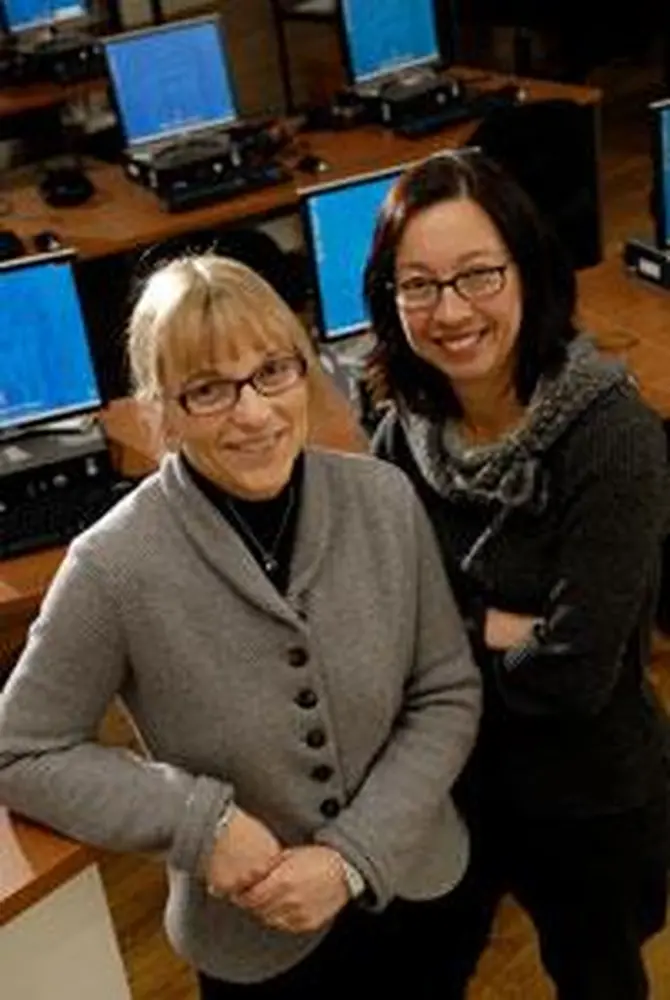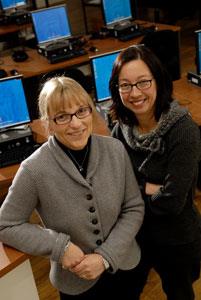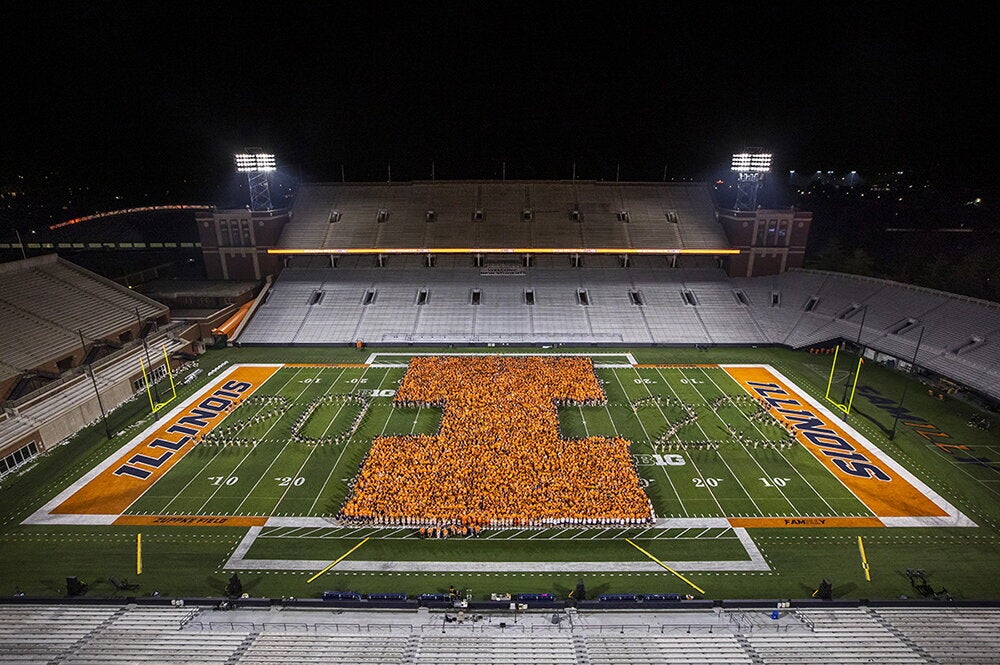

One out of every four jobs will be IT-related by the year 2012, says the Bureau of Labor Statistics. With that trend in mind, the University of Illinois is offering an informatics minor to all of its students, beginning spring semester of 2008.
Students from many disciplines report that as they compete in the job market, technical skills often make the difference in landing a position, says Deanna Raineri, an LAS associate dean, as well as associate director of the Illinois Informatics Institute. She says an informatics minor from a university such as U of I—known worldwide for its computer science program—will give Illinois students a definite edge.
Informatics is the study of the application of information technology to the arts, humanities, and sciences. Or, to put it another way, informatics is "information in action," says Judy Tolliver, coordinator for informatics education programs.
The bottom line: the new informatics program will focus on computational skills that are accessible to non-computer science majors.
Students are immersed in informatics every day, Tolliver adds. The subject covers a broad area, everything from social interaction systems such as Instant Messenger, Facebook, and blogs, to artistic expressions, such as computer animation, virtual reality, and electronic music. In addition, it includes large-scale scientific collaborations, such as the various genome projects, as well as communication systems, such as wireless devices, user interfaces, and new media.
Informatics also deals with social issues, Tolliver says. This includes privacy matters, as well as the political uses of information, such as the recent case in which Burma shut down Internet access to prevent images of its government crackdown from reaching the wider world

Chirag Kenia, an LAS junior in molecular and cellular biology, says he has decided to pursue an informatics minor because he hopes to someday merge biological concepts with data management.
"Chirag is just the type of student that this minor is going to benefit," says Raineri. "Ten to 14 years ago, a lot of disciplines, such as biology, were not nearly as computational. But now the whole field is computational, so we want our future biology students to have these kinds of technical skills. Computational biologists are gold now."
But it's not just hard-science students who will benefit, she adds. Every field has been touched in some way by technology, from the humanities and social sciences to the fine arts.
For instance, historians increasingly use IT techniques to analyze census data or tax records, as well as to create digital histories and virtual museums. English majors are entering a new world of writing through blogging, e-books, hypermedia, and self-publishing on the Web. And anthropologists and archaeologists need to be familiar with geographical information system software, as well as tools that can sort artifacts using computer vision and machine learning.
The informatics minor could also help students with an LAS degree to land jobs in other fields that are technically oriented, such as business, Raineri says.
The idea for an informatics minor originated in LAS, but it soon became obvious that it was needed across the campus. Therefore, the minor is being managed by the campus-wide Illinois Informatics Institute, or I-Cubed.
According to Raineri and Tolliver, an informatics minor will require students to take three core courses:
- Informatics 102: A broad introduction to computer science
- Informatics 103: An introduction to programming for non-computer science majors
- Informatics 202: The social aspects of information technologies
In addition to these core courses, a student minoring in informatics would be required to take an additional nine to 10 hours of approved upper-level courses that have a significant computational or informatics component. So far, the informatics program has identified more than 300 courses that qualify.
To be admitted to the informatics minor, there is no minimum grade point average. Ideally, students should apply for the minor prior to the end of their sophomore year. And although there are no prerequisites for informatics, students should have a basic familiarity with computers.
"Besides arithmetic, writing, and reading, students are eventually going to have to know some computation," Tolliver says. "Computation is the universal tool for solving problems."
For more information, visit the Illinois Informatics Institute.


